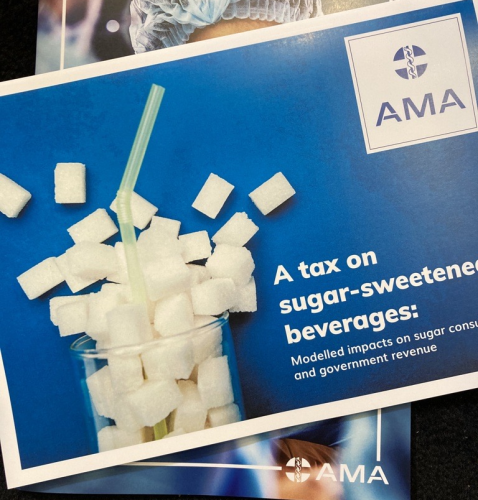World Diabetes Day highlights need for a sugary drinks tax and better chronic wound measures
World Diabetes Day highlights the need for a tax on sugary soft drinks and better chronic wound management in Australia, the Australian Medical Association said today.

AMA President Professor Stephen Robson said diabetic foot ulcers cost the health system an estimated $190 million every year.
“Every three hours of every day, one Australian loses a lower limb as a direct result of a diabetes-related foot disease,” he said.
“The AMA is calling for a two-pronged approach to tackle diabetes and chronic wounds through prevention and better treatment.”
Patients with diabetes often suffer chronic wounds, which take longer to heal and increase a person’s risk of developing infections and other complications.
An estimated 450,000 Australians live with a chronic wound, costing the health system around $3 billion a year, which is about two per cent of national healthcare expenditure.
In 2019–20 hospital admissions resulting from chronic wounds were estimated to cost $352 million, with procedures on chronic wounds costing an additional $115.7 million.
Professor Robson said poor management of chronic wounds led to prolonged healing times, infections and long-term complications, including amputations and hospitalisations.
“At the moment, Medicare does not adequately cover the cost of dressings to treat chronic wounds through general practice and patients often have out-of-pocket costs with wound consumables and seek free wound care at hospital outpatient clinics.
“The AMA’s Plan to Modernise Medicare campaign is calling for a national scheme to fund medical dressings for chronic wounds, such as those with diabetes, and new Medicare Benefits Scheme items to support general practices to provide care for patients with targeted chronic wounds.”
AMA modelling shows that receiving wound care from a GP is cheaper than care in logjammed hospitals that are facing record ambulance ramping and wait lists. It’s estimated that an investment in the delivery of wound care would save the healthcare system $203.4 million across the forward estimates.
“This is a return of nearly $9 for every $1 invested in the delivery of wound care. That is so cost effective and World Diabetes Day reminds us that we cannot afford to ignore this any longer,” Professor Robson said.
Professor Robson said prevention was also key to tackling chronic conditions.
“More than 2.4 billion litres of sugary drinks are consumed in Australia every year — it is estimated that there are 8–12 teaspoons (33–50 grams) of sugar in the average 375 ml can of soft drink.
“Sugary drinks with no or little nutritional value are fuelling the incidence of diabetes, obesity and poor vascular health, putting a huge strain on Australia’s health system.”
The AMA’s #SicklySweet campaign calls for a tax on sugary drinks to raise the retail price of an average supermarket sugary drink by 20 per cent. This would lead to a reduction in obesity of around 2 per cent, and 16,000 fewer cases of type 2 diabetes cases in Australia over 25 years.
Read the AMA’s research report Solutions to the chronic wound problem in Australia.
Read the AMA’s research report A tax on sugar-sweetened beverages: What the modelling shows.



